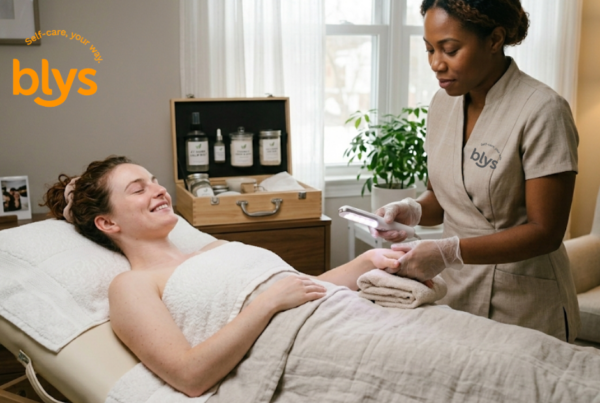Chronic pain affects many Americans, often disrupting work, sleep, and daily activities. Stiff necks from long desk hours or lingering back pain from injuries can quickly reduce quality of life. While medication or quick fixes may help for a moment, they rarely tackle the root cause.
Remedial massage takes a different approach. Instead of focusing only on relaxation, it targets muscular tension, poor posture, or strain to restore movement and support recovery. A qualified therapist works on the source of discomfort, not just the symptoms.
The catch? One session isn’t enough. Like fitness or healthy eating, the real results come with consistency. Making remedial massage part of your routine helps manage pain, improve mobility, and build resilience over the long term.
What Makes Remedial Massage Different
Remedial massage is more than just a way to unwind; it’s a therapeutic treatment that targets the root causes of pain and restricted movement. Using techniques like deep tissue pressure, trigger point therapy, and assisted stretching, therapists work to restore balance and improve function.
Here’s how it stands apart:
- Purpose: Remedial massage is outcome-focused, designed to relieve pain, support recovery, and improve mobility. Relaxation massage, by contrast, is mainly about stress relief and mental wellbeing.
- Depth of treatment: Relaxation massage works on surface tension, while remedial massage goes deeper to address muscle dysfunction, injuries, and long-term strain.
- Assessment: A remedial session begins with checking posture, range of motion, and areas of discomfort to ensure treatment is specific to the individual.
- Therapist expertise: Qualified therapists use a tailored approach, whether it’s easing desk-related back pain, loosening tight shoulders, or supporting athletic recovery.
This combination of targeted techniques and professional assessment makes remedial massage a valuable choice for anyone managing chronic pain or seeking long-term muscle health.
Did you know remedial massage can also ease stress while treating pain? Learn more and discover how regular sessions support lasting relief for both body and mind.
The Science Behind Regular Remedial Massage
When it comes to managing pain, quick fixes often only mask the symptoms. Lasting change requires a deeper approach, one that works with the body’s natural systems rather than against them. This is where remedial massage proves its value.
By focusing on soft tissues, circulation, and nervous system balance, it provides measurable improvements that build over time.
Here’s how it works:
- Muscle tension relief: Targeted pressure and movement break down adhesions and knots that limit mobility.
- Circulation boost: Improved blood flow delivers oxygen and nutrients to tight or damaged tissues, speeding up recovery.
- Nervous system regulation: Massage activates the parasympathetic response, calming the body and reducing stress-related pain.
Research backs up these outcomes. A meta-analysis published in the Pain Medicine journal reported that massage therapy significantly reduced pain and improved function in people with musculoskeletal conditions when delivered consistently.
Another clinical trial on chronic low back pain showed that patients receiving weekly massage experienced substantial improvement compared to those relying on standard care alone.
The takeaway is clear: one-off sessions may ease discomfort for a short while, but they rarely create lasting change. Regular remedial massage helps the body adapt, recover, and sustain long-term improvements in both pain relief and mobility.
Benefits of Regular Remedial Massage
While a single massage can ease tension, the real value comes from consistency. Building remedial massage into a routine allows the body to adapt and heal over time, creating benefits that extend well beyond temporary relief.
Here are the most recognized benefits of regular remedial massage, supported by research:
1. Pain reduction and improved mobility
Regular massage reduces muscle tightness and increases range of motion, making daily activities easier. Studies show massage therapy is effective in lowering chronic musculoskeletal pain and improving function (PMC).
2. Faster recovery after activity or injury
By enhancing circulation, massage helps deliver oxygen and nutrients to tired or strained muscles. Research highlights its role in reducing post-exercise soreness and promoting faster healing.
3. Better posture and muscular balance
Many posture problems stem from muscular imbalance. Consistent massage releases overactive muscles while supporting underused ones, helping correct alignment. Evidence suggests massage therapy contributes to improved posture and reduced strain-related pain.
4. Mental wellbeing alongside physical health
Chronic pain can increase stress and impact mood. Massage therapy has been shown to reduce cortisol (the stress hormone) and improve overall mental wellbeing.
Together, these effects create a powerful foundation for long-term health. By committing to ongoing care, clients not only manage pain but also support better posture, faster recovery, and mental balance.
With Blys, regular sessions are simple and accessible, making it easier to invest in lasting wellness without disrupting daily life.
Struggling with tension from long hours at a desk? Discover how remedial massage helps correct posture and see why regular sessions are key to lasting pain relief.
Mobile Massage for Chronic Pain
One of the biggest hurdles in managing chronic pain is consistency. Regular sessions at a clinic may sound ideal, but life often gets in the way with commuting across town, juggling work schedules, or dealing with flare-ups that make travel uncomfortable. For many people, these barriers mean treatments are delayed or skipped, which weakens long-term results.
This is where Blys makes a real difference. By offering mobile massage for chronic pain, Blys brings qualified therapists directly to your home, hotel, or workplace. There’s no need to drive, sit in traffic, or wait in crowded reception areas. Instead, you can focus on your comfort while a vetted professional arrives with everything required for the session.
The flexibility of on-demand booking also plays a key role. With just a few taps on the Blys app or website, you can schedule a remedial massage at a time that fits into your routine, even after hours or on weekends. This makes it easier to stay consistent with care, rather than letting pain build up between appointments.
Convenience is more than a luxury here; it’s the foundation of a sustainable care plan. By removing the obstacles of travel and scheduling, Blys helps clients commit to regular sessions, which is the key to achieving long-term pain relief and improved mobility.
Remedial Massage for Muscle Recovery
Muscle recovery isn’t just for athletes; it matters for anyone who experiences soreness, fatigue, or overuse from work and daily activities. Whether it’s the strain of long hours at a desk, lifting heavy objects, or training for a marathon, the body benefits from care that goes beyond rest alone. This is where remedial massage for muscle recovery comes in.
Post-exercise recovery and sports-related pain
After intense physical activity, muscles often tighten and develop micro-tears. Regular remedial massage improves blood circulation, which speeds up the delivery of nutrients and oxygen needed for repair. Studies show massage therapy can reduce delayed-onset muscle soreness and improve performance recovery in athletes.
Support for repetitive strain or work-related tension
Office workers, tradies, and anyone with repetitive movement patterns are at risk of muscle imbalance. Massage can relieve tension in overused areas, restore balance, and reduce the risk of long-term strain injuries.
Injury prevention, not just treatment
Consistent remedial massage isn’t only reactive; it helps prevent injuries by maintaining flexibility, reducing muscular tightness, and identifying problem areas before they become serious.
By integrating remedial massage into a regular recovery plan, people can move more freely, perform better, and protect their bodies from both short-term aches and long-term damage. It’s a proactive approach to wellness, not just a remedy once pain sets in.
How Often Should You Book?
One of the most common questions people have is how often they should schedule remedial massage. The answer depends on your body, lifestyle, and wellness goals. While there’s no one-size-fits-all approach, general recommendations can help guide the way.
- Weekly sessions are often suggested for those managing chronic pain, recovering from injury, or dealing with high physical demands such as intense training or physically demanding work.
- Fortnightly sessions work well for people with moderate levels of discomfort, recurring tension, or ongoing posture issues.
- Monthly sessions are a good option for maintenance once pain is under control, helping prevent flare-ups and supporting overall mobility.
Other factors play a role too. The severity of pain, how active you are, and even stress levels can all influence how frequently you might benefit from treatment. Someone training for a marathon, for example, will likely need more frequent sessions than someone with mild desk-related stiffness.
What matters most is consistency. A single massage can bring short-term relief, but regular care is what leads to lasting improvement. With Blys, sticking to a routine is simple. Easy online booking and mobile therapists mean you can keep up with ongoing care without disrupting your schedule.
Making Regular Care Accessible with Blys
Even with the best intentions, keeping up with regular treatments can be hard. Between busy schedules, long commutes, and everyday responsibilities, it’s easy for pain management to slip down the priority list. Blys helps remove these barriers by making professional remedial massage simple and accessible.
- Trusted therapists: Every Blys therapist is fully qualified, vetted, and experienced, giving you peace of mind that your treatment is in safe hands.
- Nationwide coverage: Whether you’re in a major city or a regional area, Blys connects you with local therapists across the US.
- Easy booking: Using the Blys app or website, you can arrange a session in just a few taps, with flexible times that work around your lifestyle.
- Tailored care at home or work: Therapists bring all the equipment needed, so you can enjoy a professional session in the comfort of your own home, hotel, or even your workplace.
By making massage more convenient, Blys makes it easier to stay consistent with care. You don’t need to plan your day around an appointment or worry about travel; just book, relax, and let the benefits build over time.
Building a Long-Term Wellness Habit With Blys
Managing pain and improving mobility is never about quick fixes. The evidence shows that consistency makes all the difference. Regular remedial massage helps reduce chronic discomfort, speeds up recovery, supports posture, and balances both body and mind. Add to that the convenience of mobile care with Blys, and it becomes much easier to keep treatments part of your lifestyle.
Think of remedial massage not as a one-off solution, but as ongoing self-care just like exercise, good nutrition, or quality sleep. Over time, small steps build into long-term results, giving you greater comfort, better movement, and a stronger sense of well-being.
With trusted therapists, nationwide access, and flexible booking at home or work, Blys makes it simple to commit to this habit.
Ready to experience lasting relief? Schedule your next Blys remedial massage and keep your wellness on track.






